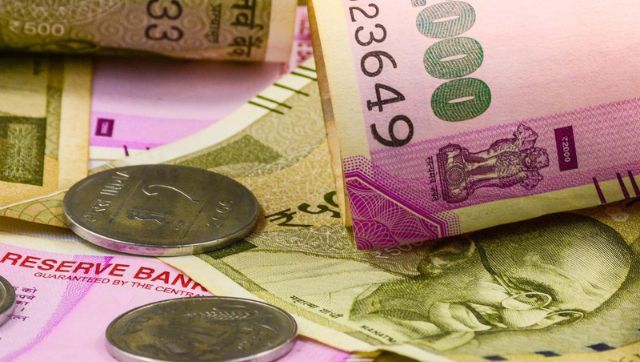The US, EU and a large part of the Western world heading decisively towards an economic recession, has puzzled several economists as to why India continues to clock solid numbers on economic markers, suggesting that India seems to remain insulated from global economic upheaval. To understand why India remains financially sound, it is essential to understand what has brought on this global recession in the first place.
At the onset of the Covid-19 pandemic in early 2020, as most countries imposed restrictions on movement greatly impacting businesses and thus incomes, the spill-over impact on supply and demand dynamics destabilised even the most advanced economies. Nations were forced to take urgent, macro policy measures to counter this sudden crisis. Countries tried to find a policy solution on lines of the cornerstone theories advocated by noted economists John Maynard Keynes and Friedrich von Hayek. Both of them published their works in the mid-1990s with contrasting approaches.
While the Keynesian theories hugely propagate substantial government spending in times of crisis to kick-start consumption, Hayek’s work theorises that extreme hand-holding by the government leads to long-term stagnation due to interference in natural market forces. Most nations went with Keynes’ approach of vigorous government intervention by huge spending in the form of cash hand-outs and putting money in people’s pockets. They hoped that such measures would awaken demand and lift the spirit of businesses who’d then hire more people. In retrospect, it is this thought which seemed to be a total miscalculated step since artificially stimulating the economy on such a macro-scale, inevitably leads to inflation, followed by slowdown.
Conversely, Indian economists believed that the way to emerge from a once-in-a-century crisis like the Covid-19 pandemic would be to take policy actions which were an amalgamation of the two theories. If we went solely by the Keynesian approach, due to our population, filling several billion pockets was bound to put extreme strain on our exchequer. On the other hand, letting nature run its course with minimal governmental interference as preached by Hayek, would push our most vulnerable people into undesirable circumstances. In addition, Prime Minister Modi strongly believed that giving out cash-in-hand to all Indians would be counter-productive — it wouldn’t create that surge in spending required to stimulate the envisioned demand due to the inherent nature of Indians to save versus spend, especially during trying times.
Being completely conscious of the longevity of the pandemic crisis of this nature, many world-renowned economists (including Nobel Laureates) had begun to preach to us that India’s economic response should be one grand re-inflation package in which we would spend a lot of money trying to re-inflate the economy upfront as early as April and May 2020. However, instead of using up all our ammunition right in the beginning, Prime Minister Modi, on the balanced advice of his economic advisors, was of the view that we were in a marathon which would take us through uncharted terrain versus a quick sprint of which an end was in sight. Thus, we must be prepared for the unforeseen surprises. Being fully mindful of all of the above, India adopted a ‘modified barbell approach’.
Impact Shorts
More ShortsAs described in modern economics, a modified barbell approach meant that instead of a one-time, big bang fiscal package, India would take slow measured steps, incorporating feedback from the ground from time-to-time. We were fully conscious that simply reflating the economy through increased government expenditure would surely lead to high inflation and even stagnation if combined with low growth rates.
The most vulnerable were taken care of first, and to ensure that no Indian went hungry over 80 crore Indians were provided food-grains. This kind of in-kind transfer of cereals and pulses helped the government avoid overbearing fiscal costs as they could tap into their existing reserves created by their food procurement policy and use their already functional food distribution system to meet demands. By making use of the 40 crore Pradhan Mantri Jan Dhan Yojana bank accounts created after Prime Minister Modi took office in 2014, India was able to quickly transfer money to the very poor without leaks due to systemic errors and corruption.
In order to have a multi-fold impact on spending, key areas for aggressive spending such as infrastructure, structural reforms to alleviate supply-side friction and incentives for businesses to ramp up production formed the pillars of India’s economic response. Early on, to prevent a worst-case scenario of business going under, India provided government guaranteed loans to MSMEs, taking into account details from the granular information of borrowers tracked by our financial sector (reducing risk of defaulting on payments). In June 2020, when India began to unlock, several economic indicators began to show encouraging growth markers. Observing signs of improvement by collecting data from the ground, India increased capital spending in areas which had the potential to yield multi-fold returns like infrastructure including transport infrastructure building activities. India’s GST collections crossed 1 trillion rupees after 8 months resting on strong growth-markers such as reduction in unemployment rates to pre-Covid levels, a strong NIFTY index higher than that of the previous year, pick-up in industrial activity, substantial improvements in port and railway freight traffic and electricity generation — thus indicating that India was heading towards a V-shaped economic recovery — a complete bounce-back.
As of today, India has been able to control its inflation and maintain it in single digits when most advanced and emerging economies are struggling to control rates even at 14-15 percent. By early recognition for the need to undertake supply-side measures and maximising the bang for the taxpayer buck on the demand side, India has been able to remain relatively stable and insulate itself in this time of great economic volatility globally.
Priyam Gandhi-Mody is a political communications strategist and author. Her latest book is ‘A Nation to Protect: Leading India through the Covid Crisis’. Views expressed are personal.


)

)
)
)
)
)
)
)
)



